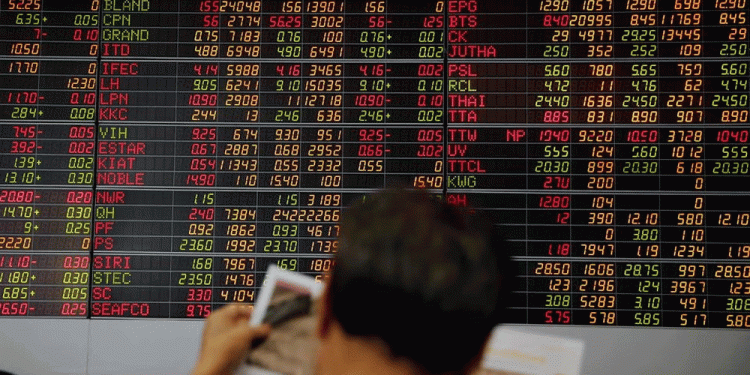IMF chief Christine Lagarde said on Saturday China’s slowdown, which has spread fear on global finance markets, is “very normal” but the road ahead will be bumpy.
Lagarde told the World Economic Forum in the Swiss ski resort of Davos that China’s transition to an economy led by consumer demand instead of state investment was unlikely to lead to a “hard landing” for the world’s second-largest economy.
The Chinese government announced this week that its economy grew by 6.9 percent in 2015, the slowest rate in a quarter of a century.
Lagarde told a panel on the final day of the Davos meeting: “We are not seeing a hard landing… We are seeing an evolution, a big transition which is going to be bumpy.
“We have to get used to it and it’s a very normal and proper way to actually move towards a more sustainable and a more quality growth, we all hope,” she said.
Even (Taiwan OTC: 6436.TWO – news) before the growth figures were released, worries of a weak Chinese economy had sown fears across global markets.
Share (LSE: SHRE.L – news) prices have been plummeting since January 1, with low oil prices also having a negative effect as a supply glut destabilises fragile energy-producing countries.
“(It (Other OTC: ITGL – news) ) is simply the worst start of any year on the record on financial markets ever, it’s simple,” French banker Tidjane Thiam, the CEO of Credit Suisse (LSE: 0QP5.L – news) , said at the same Davos session as Lagarde.
“The market is very worried about China, of course. They fear we will fall into a global recession,” he said.
Bank of Japan Governor Haruhiko Kuroda said China should do more to manage the yuan currency that has fallen sharply and sparked concern that cheaper China exports will flood the world economy.
“Capital (Other OTC: CGHC – news) controls could be useful to manage (the) exchange rate as well as domestic monetary policy in a consistent and appropriate way,” Kuroda said.
British finance minister George Osborne said China had overshadowed proceedings at the annual gathering of the rich and powerful.
“The world has not been very good over previous centuries at accommodating rising powers and it has often led to unhappy outcomes,” Osborne said bleakly.
“I think it is massively in our interest that we bring China into the multilateral institutions of the world,” he said.
– Support for Lagarde repeat –
Lagarde herself was also an issue at Davos, as she quietly campaigned to win backing for a second mandate as IMF managing director.
With (Other OTC: WWTH – news) her term coming to an end in July, the IMF formally began accepting nominations on Thursday for who will guide the global crisis lender for the next five years.
The biggest powers governing the Washington-based Fund, including Britain, Germany and France, all gave their support to Lagarde this week.
In her first term, she was deeply involved in the decision to add the Chinese yuan to the IMF’s basket of reserve currencies, a highly symbolic move that was greatly appreciated by Beijing.
Lagarde’s plans to run again nonetheless face a potential hurdle — she could have to stand trial in France over her role in a banking scandal that predates her arrival at the IMF.
In December, French judges placed her under formal investigation in the long-running affair of former Adidas (Other OTC: ADDDF – news) owner Bernard Tapie, who received a large state payout for his dispute with a state bank during her time as finance minister.
Lagarde has said she will fight the trial order, and the IMF executive board at the time reiterated its confidence in her.



























